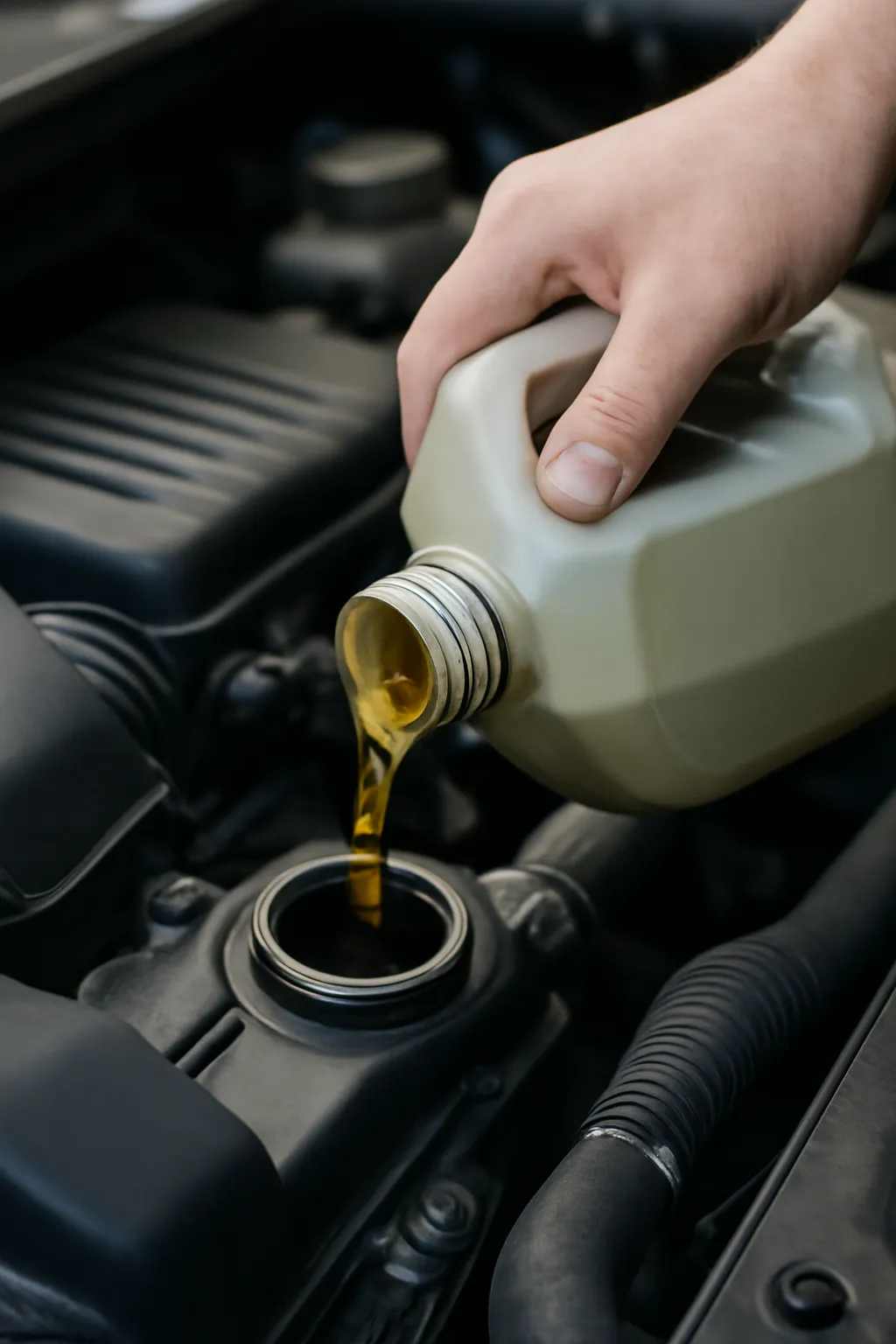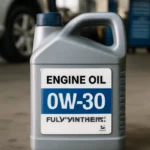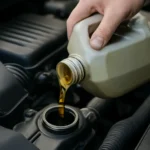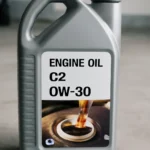Engine oil is essential for your vehicle’s performance, acting as a lubricant for moving parts within the engine and helping to keep it clean, cool, and running smoothly. However, many car owners overlook the importance of regular oil changes or fail to understand the significance of choosing the right oil grade. In this article, we’ll cover everything from basic engine oil maintenance to understanding oil grades and why certain oil warning lights should not be ignored.
Do you know why engine oil is vital for your car’s performance? Wondering what the engine oil grade should be for your vehicle? Find out everything you need to know about engine oil, grades, and warnings in this comprehensive guide!
Why Forgetting Engine Oil Can Be Detrimental
Engine oil is the lifeblood of your vehicle’s engine. Without it, your car can suffer from increased friction, overheating, and potentially catastrophic engine damage. Yet, many drivers forget to change or top up their engine oil regularly, often neglecting the signs that indicate the need for oil maintenance.
The Consequences of Low or No Oil
Ignoring engine oil maintenance can lead to significant issues such as:
-
Increased Wear and Tear Oil reduces friction between engine components, preventing excessive wear. Without it, metal parts rub against each other, leading to accelerated damage.
-
Overheating Oil acts as a coolant, absorbing heat from engine parts. Insufficient oil can result in the engine overheating, potentially seizing up.
-
Complete Engine Failure The most severe consequence of neglecting engine oil is a complete engine failure. Without proper lubrication, the engine may lock up and fail completely.
To prevent these issues, it’s crucial to remember to check and change your engine oil regularly.
When to Change Your Engine Oil
Most vehicles require an oil change every 3,000 to 5,000 miles, depending on the type of oil used and the manufacturer’s recommendations. However, modern vehicles with synthetic oil may last longer between changes, sometimes up to 10,000 miles.
Additionally, keep an eye out for the engine oil warning light, which signals that your oil level is low or the oil itself is dirty and no longer effectively lubricating your engine. Don’t ignore this light, as it could save you from expensive repairs.
Click here for more details on engine oil care.
👉 Learn More About Engine Oil Care 👈
Understanding Engine Oil Grades and Why They Matter
One of the most important aspects of engine oil maintenance is choosing the right oil grade for your vehicle. Engine oil grades are typically identified by a set of letters and numbers, such as 5W-30 or 10W-40. These numbers and letters indicate the viscosity and performance of the oil under different temperature conditions.
Engine Oil Grade Explained
-
The First Number This refers to the oil’s viscosity at low temperatures. The “W” stands for winter, indicating the oil’s ability to flow in cold temperatures. A lower number (e.g., 5W) means the oil flows better in cold weather.
-
The Second Number This refers to the oil’s viscosity at high temperatures. A higher number means the oil will maintain its thickness at high temperatures, providing better protection for your engine.
Popular Oil Grades
-
5W-30 Common in modern vehicles. It offers good performance in both cold and hot temperatures.
-
10W-40 Ideal for high-performance vehicles that operate in warmer climates or high-stress conditions.
-
0W-20 Often used in newer cars with modern engines, this oil grade provides excellent cold-start performance.
Choosing the correct oil grade is crucial for optimal engine performance and longevity. Check your vehicle’s manual or consult your mechanic for the recommended grade.
Understanding Engine Oil Grade C3
If you’ve ever seen C3 on engine oil packaging, it refers to a specific category of oil designed for diesel engines with a diesel particulate filter (DPF). These oils are formulated to meet the standards required to protect both the engine and the DPF.
C3 oils are often fully synthetic and help reduce emissions while offering enhanced protection under high stress. If your vehicle requires C3 grade oil, it’s essential to use it to ensure the proper functioning of the engine and exhaust system.
Click here for more information on engine oil grades.
👉 Discover More About Engine Oil Grades 👈
Dealing with Engine Oil Warning Lights and Flickering Indicators
It’s common to see various warning lights on your vehicle’s dashboard, but one light you should never ignore is the engine oil warning light. This light can appear as a symbol of an oil can or simply indicate that your oil level is too low. If this light comes on, it’s a sign that your engine requires immediate attention.
Why the Warning Light Flickers
Sometimes, the engine oil warning light may flicker or illuminate intermittently. This is often due to:
-
Low Oil Levels When the oil level drops below the optimal range, the light may flicker. Top up your oil to avoid further complications.
-
Oil Pressure Problems A flickering oil light can indicate an issue with the oil pressure, such as a malfunctioning oil pump or clogged oil passages.
-
Oil Contamination If the oil has become too dirty or thickened, it may fail to circulate properly, causing fluctuations in pressure and triggering the warning light.
What to Do When the Light Comes On
If your engine oil light appears or flickers, stop driving immediately. Check the oil level using the dipstick and add oil if needed. If the light remains on or flickers after adding oil, seek professional help from a mechanic to check the pressure and assess the overall condition of the oil.
Ignoring a flickering oil warning can lead to severe engine damage, so it’s best to act quickly to avoid costly repairs.
Click here for more insights on engine oil warning lights.
👉 Learn More About Engine Oil Warnings 👈
Conclusion
Engine oil plays a critical role in the health of your vehicle. Whether you are topping up your oil or performing a full change, always ensure you’re using the correct oil grade for your engine. Be proactive in monitoring your oil levels and address any warning lights promptly to maintain your vehicle’s performance and avoid costly damage. Remember, engine oil isn’t just a fluid—it’s your engine’s protector, and regular maintenance can save you both time and money in the long run.
“An engine with poor oil is like a body without blood—eventually, it will stop working.” So take care of your engine, and it will take care of you.






